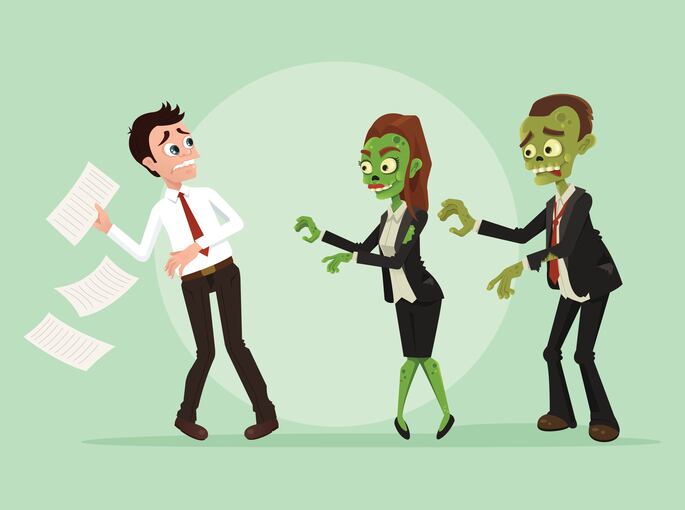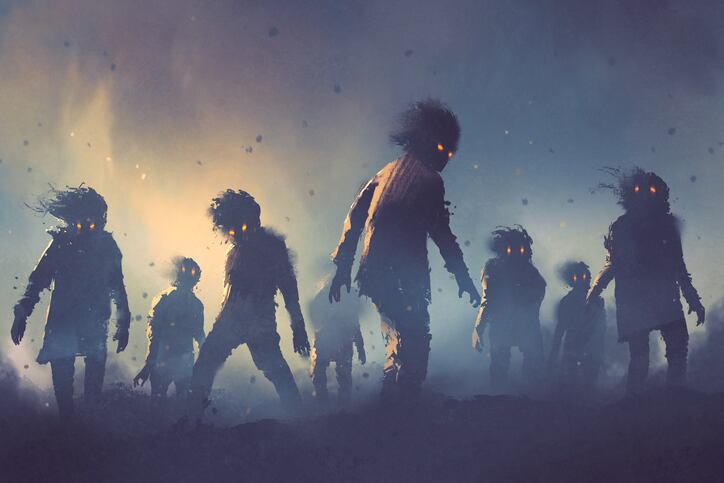‘Zombies’ are identified as products and packages that ‘despite our best intentions and efforts, have not grown over a three-year period’, instead distracting attention and misusing resources, says Coca-Cola.
The company has developed a guide to help its various markets identify and kill zombies using a disciplined process; with CEO James Quincey requesting ‘zombie reviews’ as part of overall business reviews in each market.
New Coke
Coca-Cola’s best known zombie is probably New Coke. In 1985 Coca-Cola announced it was scrapping its original formula – which had been around for 99 years – for a new, sweeter version. New Coke reportedly performed better than original Coke in taste tests, but the company underestimated the attachment to the original variety. Three months later, after significant consumer backlash, the company announced the return of the original variety.
Innovation does not mean experimentation solely for the sake of experimentation, says Quincey. It also requires a certain level of ruthlessness.

Today, the zombie hunt is looking for products which have not lived up to their potential, and are instead a potential drain on resources.
So far this year, Coke’s Middle East and North Africa business unit has identified more than 125 underperforming SKUs 'for elimination’. To date, 60% of these drinks have been discontinued, and the rest will be delisted by end of year, CEO James Quincey revealed during the company’s Q2 earnings call recently.
Brazil, too, is highlighted as another market where zombie brands have been ‘boldly’ identified and are set to be discontinued.
Reduce complexity
Quincey says that it is critical to reduce complexity to ensure the sales force is focused, the supply chain is efficient, and the innovation pipeline gains more space and visibility at the point of sale.
“To that end, we've been identifying and killing zombie brands and SKUs while focusing our teams on the work that matters most,” he said.
Referencing the work the company has done in the Middle East and North Africa, he added: “Given the benefits we're seeing, of course, we're embedding the elimination of zombie SKUs and brands even further into existing routines, instilling this discipline deeper into our business units.
"This taking a more disciplined approach to our portfolio is only one of the ways we're looking to reduce complexity in the business.”
Learn from mistakes
Francisco Crespo, Coca-Cola’s chief growth officer, admits that killing of unsuccessful products should be an obvious move. “However, we see that even in some of the best companies, zombies exist side-by-side with rock stars,” he said.
'The reality is that the unseen costs of zombies harm an organization'
Francisco Crespo, chief growth officer

He attributes this to reluctance to let go simply to human nature – it’s hard to admit failure and take the decision to axe a product entirely. “Well-meaning leaders keep zombies based on hope and often misplaced optimism that maybe, one day, the zombie will come to life,” he said.
The biggest lesson to learn from New Coke is the courage required to withdraw it after 80 days, he added.
Crespo says that people within the business need to know that it is ‘OK to fail; but not OK to not know why’. If Coca-Cola does not learn from its mistakes, then more zombies will keep being created.
“Zombie-infested organizations often say, ‘There is no harm in keeping this product,"' he says.
"The reality is that the unseen costs of zombies actually harm an organization. Imagine the costs related to material management and procurement, production, inventory costs, distribution, salesperson time and, most of all, the opportunity cost of putting a better product in its place.”
Images: Getty/grandfailure; getty/phive2015; getty/irinagristova

